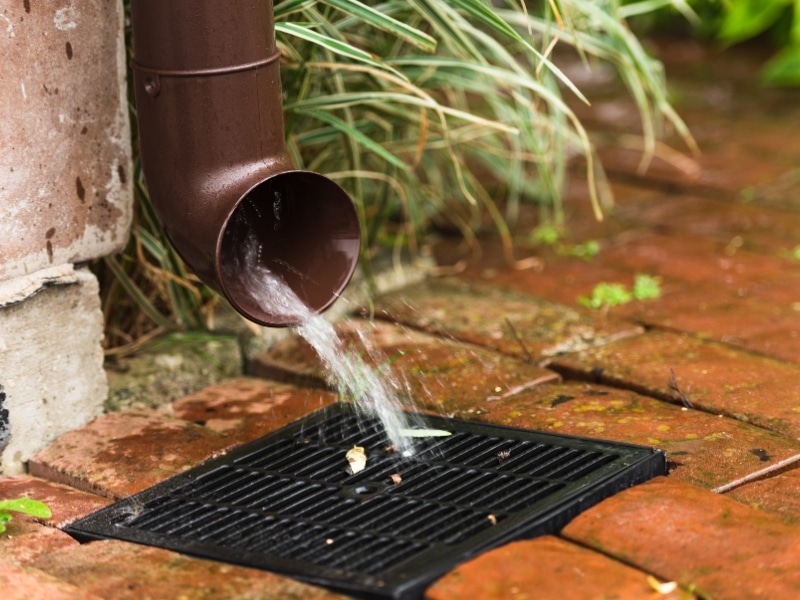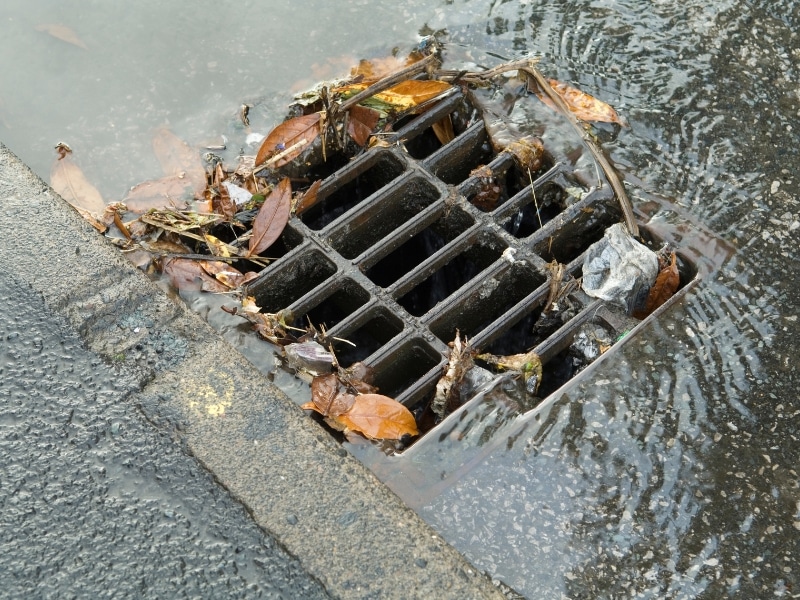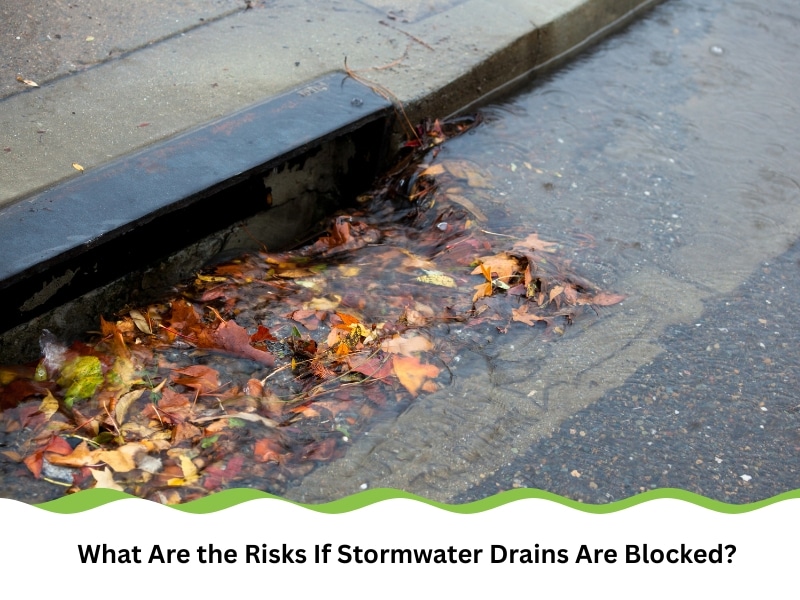Blocked stormwater drains are more than just a nuisance—they can trigger severe property damage, attract pests, and even cause health issues. In many Aussie suburbs, where sudden downpours are the norm, debris and leaves often block stormwater drains, leading to rapid flooding that can escalate fast and without warning. Whether it’s your garden flooding or a strange smell rising from the grates, ignoring the problem only makes it worse. Even if you think your drains are clear, they might be slowly clogging up. Early signs often go unnoticed until the damage is done. This blog explores the causes, consequences, and solutions related to blocked stormwater drains.
Why do stormwater drains become blocked so easily?
Stormwater drains are built to handle natural water runoff, but they aren’t foolproof. Over time, even the most robust systems face issues, especially when leaves, debris, or other materials block stormwater drains. The materials and environment around your home play a big part in how quickly these blockages form.
- Natural debris, such as leaves, bark, and sticks, often piles up after windy days.
- Sediment buildup from soil and dirt settles and hardens in pipes
- Construction waste or leftover materials can sneak into the drain openings
- Plastic litter easily enters street drains and doesn’t break down
One often-overlooked factor is the management of garden runoff. You might be rinsing down paths, but any small solids get swept into the drain, too. Over time, those small bits form a solid mess.
What are the common causes of stormwater drain blockages?
Understanding the most frequent causes helps you spot patterns early. Some issues are seasonal, others relate to home design or habits. Here’s a look at the usual suspects:
| Cause | Description | Prevention Tip |
| Tree roots | Roots enter cracks in pipes and expand over time | Trim nearby trees and monitor root growth |
| Garden soil & mulch | Washes into drains during rain or hosing | Use barriers or edging near garden beds |
| Diy waste & rubbish | Paint, cement, or gravel dumped down drains | Dispose of leftover materials responsibly |
| Poorly designed grading | Surfaces sloped the wrong way, pushing more debris into the drains | Adjust slope or redirect flow paths |
| Forgotten maintenance | Years of no clearing or flushing lead to a buildup | Schedule seasonal drain checks |
If your stormwater drain is blocked, these common causes are likely involved. Monitoring how water flows off your property can reveal problems before they become costly.
How can a blocked stormwater drain damage your property?
It doesn’t take much water to cause a whole heap of trouble. Blockages can lead to both short-term issues and long-term deterioration.
- Flooding risks increase as water pools around foundations
- Wall damage from rising damp causes bubbling paint and cracking plaster
- Driveway subsidence happens when trapped water loosens the soil
- Stormwater backup may force dirty water up through toilets or sinks
That small blockage in the back drain? It might already be starting to block stormwater drains, causing moisture to seep under the slab. Over time, this leads to mould, structural shifts, and unpleasant odours indoors.
A proven way to stay on top of drainage issues is to explore effective solutions designed to unblock stormwater drains safely, especially if the system is older or surrounded by dense garden beds.
What preventive measures can stop drain blockages early?
It’s not rocket science—simple routines can make a huge difference. Staying on top of the basics is the best defence.
- Scoop out leaves and twigs from garden grates after storms
- Use drain guards in outdoor pipes to block large debris
- Keep lawn clippings and mulch away from concrete stormwater inlets
- Rinse driveways using a broom first, not just a hose
Some homes benefit from professional cleaning every couple of years. You don’t need to wait for an emergency—getting in before a problem starts is always cheaper.
If recurring signs of a blocked stormwater drain are cropping up, there may be a deeper issue in the way runoff is managed around the home.

How do experts safely clear blocked stormwater drains?
Professionals bring specialised tools and the know-how to avoid damage. Trying to DIY it with coat hangers or random chemicals? That’s when things go pear-shaped.
- CCTV drain cameras inspect the blockage source and type
- Hydro jetting blasts away tough debris and mineral buildup
- Drain snakes are used for soft or fibrous clogs
- Pipe relining repairs cracks without full excavation
Sometimes, what seems like a minor blockage is something more serious—like a collapsed pipe or an old clay line overtaken by roots, which are just some of the common reasons why your drains keep getting blocked. That’s why getting an expert inspection is so important. A licensed drainage professional can quickly identify the problem and recommend a lasting solution.
Are blocked stormwater drains a health hazard?
Absolutely. Many Aussies think of blocked drains as just messy, not risky. However, stagnant water and hidden mould pose significant health concerns.
- Mosquito breeding skyrockets with even a small puddle of still water
- Mould spores thrive in wet subfloor spaces, triggering allergies
- Foul odours are often the first sign of decomposing organic matter
- Cross-contamination between greywater and stormwater can occur
These risks are exceptionally high in homes with older pipework or little ventilation under the house. If your backyard smells musty after rain, it might be time to investigate. Even outdoor drain blockages, especially those that block stormwater drains, can affect your indoor air quality.

What should you do immediately if your drain is blocked?
First things first: don’t panic. Start with a few safe checks before reaching for tools.
- Clear surface grates of leaves, rubbish, or garden runoff
- Use a bucket of water to test how quickly it drains
- Avoid using harsh drain chemicals—they can corrode pipes
- Call a licensed plumber for any overflow or sewage backup
If you notice repeated blockages, slow flow, or gurgling sounds, your pipes likely need a proper clear-out. It also helps to know how to manage stormwater around your home effectively so you’re not just fixing symptoms, but tackling the root of the problem.
In some cases, partial blockages higher up the line may be the issue. These are best handled by experienced professionals who understand how to assess entire systems and recommend next steps.
Final thoughts
Stormwater drains aren’t something most people think about—until there’s a problem. But waiting for water to back up or overflow puts property and health at risk. Understanding what causes blockages and how to prevent them gives a serious edge. For those dealing with persistent blockages or drainage red flags, explore how Eco Plumbers 24/7 handles stubborn blocked drain problems.

